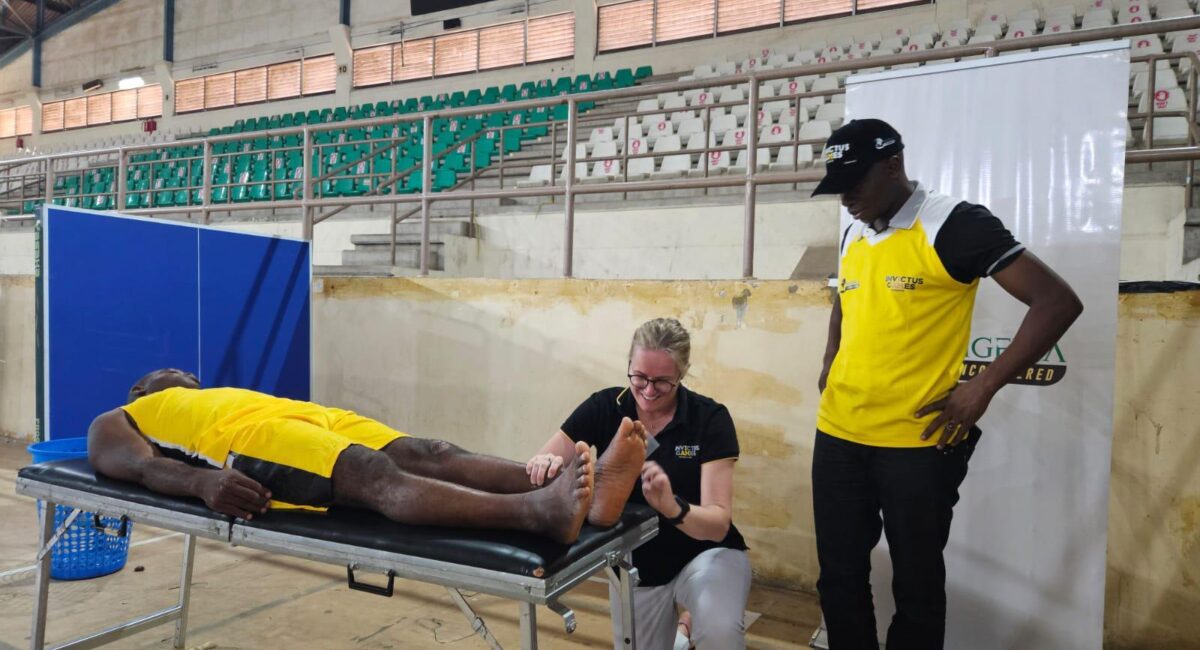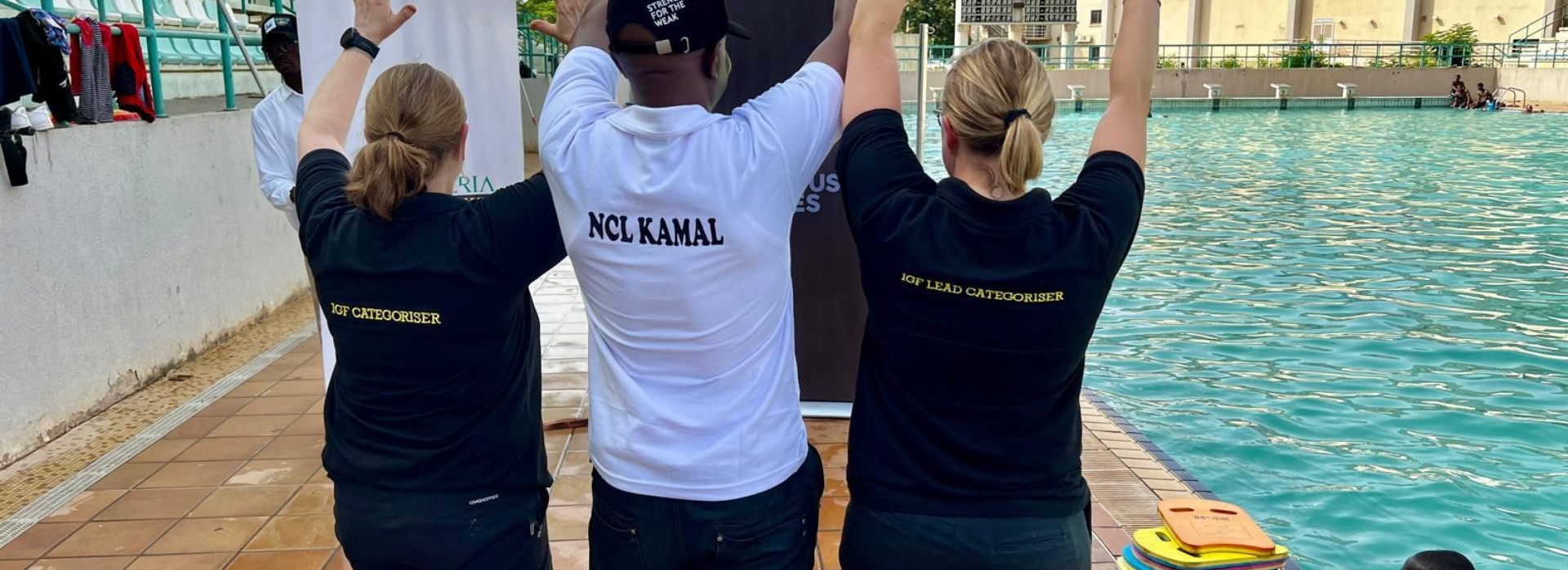The Invictus Games Foundation has held the first categorisation visit for the next Invictus Games, the historic first winter hybrid edition of Vancouver Whistler 2025, as the IGF categorisation team visited Abuja to assess the capabilities of Team Nigeria.
The categorisation visit was a part of a series of sporting engagements and interactions with the local service community attended by the Duke and Duchess of Sussex, to promote the cause of the Invictus Games Foundation and mental health awareness in the first African country to join the Invictus Community of Nations.
This visit followed the 10th Anniversary of the Invictus Games Foundation, which was marked by a series of events in London including a Service of thanksgiving at St. Paul’s Cathedral. Within Nigeria, it formed part of an Invictus Games Foundation funded sporting camp, supported by Monster Energy Cares.
The Duke of Sussex visited a Nigeria: Unconquered training session, a local charitable organisation that supports wounded, injured, or sick service personnel and veterans, and was born from the Invictus movement. They support Team Nigeria’s participation in the Invictus Games, and during this training session, categorisers visited from the Invictus Games Foundation ahead of the upcoming Invictus Games Vancouver Whistler 2025.
Categorisers' for the Invictus Games Foundation were in Abuja to assess Team Nigeria in readiness for the upcoming Games. Unique to the Invictus Games, this categorisation process involving volunteers also considers the impact of invisible injures on the ability of competitors to participate in sporting competition.
Helen Blamey, the Lead Categoriser at the Invictus Games Foundation said she was “very privileged” to be part of the first categorisation visit to Nigeria.
“Team Nigeria have been very welcoming and have an enormous amount of energy and commitment. Their support for us and each other was truly humbling," Helen said.
Helen enjoyed the “enormous amount of energy” that the Nigerian Team is bringing to the Invictus Community and is grateful for all the support given to the categorisers' during their visit.
Rachel Spanner was also in attendance to aid categorisation for the team and deemed her time in the country as “fantastic”.
“The support staff and coaches of Team Nigeria have been very welcoming,” Rachel said, and she was excited to work alongside members of Nigeria: Unconquered, who are keen to learn and develop their own knowledge and skills to aid the local service community.
The IGF Categorisation process will continue in the build-up to the Invictus Games Vancouver Whistler 2025 with IGF categorisers travelling to nations across the community in the coming months.
Nations that are unable to accommodate a categorisation from the Invictus Games Foundation will be able to receive their mandatory categorisation assessment before Vancouver Whistler 2025 at facilities in Canada.
About Vancouver Whistler 2025
The Invictus Games Vancouver Whistler 2025 will take place from 8 to 16 February and will see up to 500 wounded, injured and sick service personnel and Veterans from up to 25 nations travel to British Columbia to compete in both winter and indoor adaptive sporting events.
These Games will be delivered in collaboration with the First Nations and indigenous communities of Canada.
About Categorisation
The Games are not about high-performance sport or winning medals. Games are focused on using sport as tool for competitor recovery and rehabilitation, and we purposefully use the terms ‘competitors’ (rather than athletes); and ‘categories’ (not classifications). All competitors are eligible to participate in the Invictus Games regardless of their impairment type - this includes competitors traditionally excluded from para-sport, and each nations selects, trains and manages their team differently and has varying degrees of experience with adaptive sport.
The Categorisation process, run by the Invictus Games Foundation with thanks to 22 international volunteers, uses a more subjective approach to enable wider participation, and differs from IPC sport classes in number, format, naming and inclusivity, such as including psychological injuries and chronic health conditions. The aim of the IGF Categorisation process is to ensure that a robust and fair categorisation process is implemented, in keeping with the ‘Spirit of the Games’, ensuring individuals are neither advantaged nor disadvantaged by their impairment(s) and that a consistent approach is adopted across all the nations, maintaining the integrity of the competition and in the interests of fair play.
The system used is ‘functional’ – this means that the main factors that determine category are not diagnosis and medical evaluation, but how much the functional impairment of a person impacts upon sports performance, thus different categories are allocated to each competitor for each individual sport. The categorisation system relies on the integrity and honesty of competitors, and all team staff.

